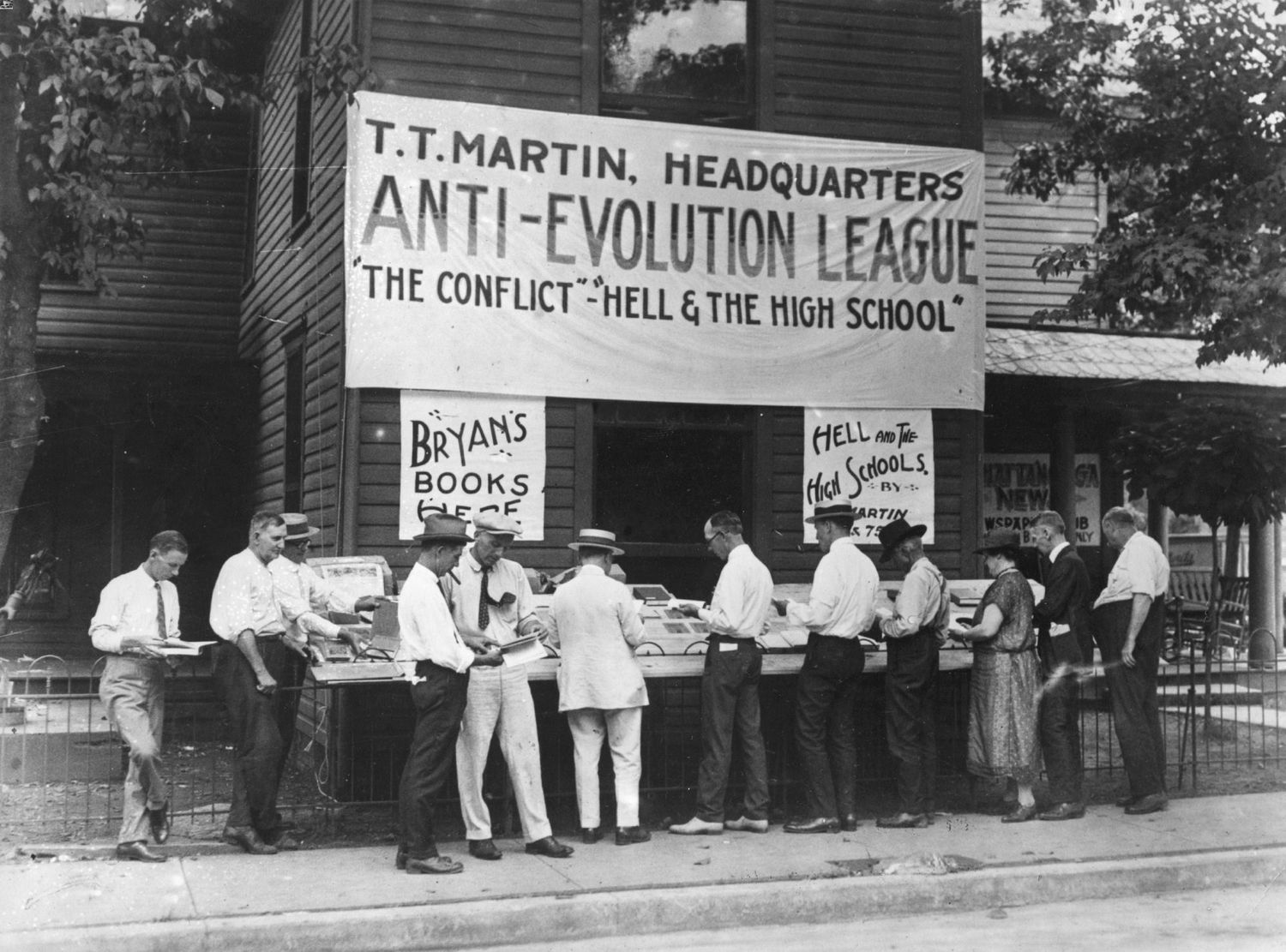
The Scopes Trial, also known as the "Monkey Trial," was a landmark legal case in 1925 that pitted science against religion. John T. Scopes, a high school teacher, was accused of violating Tennessee's Butler Act, which prohibited the teaching of human evolution in state-funded schools. This trial wasn't just about one teacher; it sparked a nationwide debate on education, science, and religion. William Jennings Bryan, a three-time presidential candidate, argued for the prosecution, while Clarence Darrow, a famed defense attorney, represented Scopes. The trial's outcome had lasting effects on American education and legal systems. Why did this trial captivate the nation? Let's delve into 15 fascinating facts about the Scopes Trial that reveal its significance and legacy.
The Scopes Trial: A Landmark Case
The Scopes Trial, also known as the "Monkey Trial," was a pivotal moment in American history. It pitted science against religion, modernity against tradition. Here are some fascinating facts about this historic event.
-
The Trial's Full Name: Officially, it was called "The State of Tennessee v. John Thomas Scopes." This trial took place in 1925.
-
John Scopes: Scopes was a high school teacher in Dayton, Tennessee. He was accused of teaching evolution, which was illegal under Tennessee's Butler Act.
-
The Butler Act: This law prohibited public school teachers from denying the Biblical account of man's origin. It specifically banned the teaching of evolution.
-
The ACLU's Role: The American Civil Liberties Union (ACLU) sought to challenge the Butler Act. They advertised for a teacher willing to be prosecuted. Scopes volunteered.
-
Dayton's Motivation: Dayton, a small town, saw the trial as a way to gain publicity and boost the local economy. They succeeded beyond their wildest dreams.
Key Figures in the Trial
Several prominent individuals played crucial roles in the Scopes Trial. Their involvement added drama and significance to the proceedings.
-
Clarence Darrow: Darrow, a famous defense attorney, represented Scopes. He was known for his agnostic views and his defense of controversial cases.
-
William Jennings Bryan: Bryan, a three-time presidential candidate and devout Christian, served as the prosecutor. He was a staunch opponent of evolution.
-
H.L. Mencken: Mencken, a journalist and critic, covered the trial for the Baltimore Sun. His witty and scathing reports helped shape public perception.
-
Judge John T. Raulston: Raulston presided over the trial. His rulings often favored the prosecution, leading to accusations of bias.
-
Scopes' Students: Several of Scopes' students testified that he had indeed taught them evolution. Their testimonies were crucial to the case.
The Trial's Proceedings
The Scopes Trial was not just a legal battle; it was a spectacle. The courtroom was packed, and the proceedings were broadcast on the radio.
-
Media Frenzy: The trial attracted national attention. Newspapers, radio stations, and newsreels covered every moment, making it one of the first "media trials."
-
Outdoor Courtroom: Due to the intense heat and the large crowds, part of the trial was held outside. This added to the circus-like atmosphere.
-
Darrow vs. Bryan: One of the most dramatic moments was Darrow's cross-examination of Bryan. Darrow questioned Bryan on his literal interpretation of the Bible, exposing contradictions.
-
Scopes' Conviction: Scopes was found guilty and fined $100. However, the verdict was later overturned on a technicality.
-
Long-term Impact: The trial highlighted the tension between science and religion. It also spurred debates on academic freedom and the separation of church and state.
The Scopes Trial's Lasting Impact
The Scopes Trial wasn't just a courtroom drama; it was a pivotal moment in American history. It highlighted the clash between science and religion, a debate still relevant today. This trial put Dayton, Tennessee on the map and made John T. Scopes a household name. It also showcased the talents of Clarence Darrow and William Jennings Bryan, two legal giants.
Though Scopes was found guilty, the trial sparked nationwide discussions about education and academic freedom. It led to changes in how evolution and science are taught in schools. The trial's legacy lives on, reminding us of the importance of questioning and understanding different viewpoints.
So, next time you think about the Scopes Trial, remember it wasn't just about one man or one law. It was about the ongoing struggle to balance knowledge and beliefs in society.
Was this page helpful?
Our commitment to delivering trustworthy and engaging content is at the heart of what we do. Each fact on our site is contributed by real users like you, bringing a wealth of diverse insights and information. To ensure the highest standards of accuracy and reliability, our dedicated editors meticulously review each submission. This process guarantees that the facts we share are not only fascinating but also credible. Trust in our commitment to quality and authenticity as you explore and learn with us.


